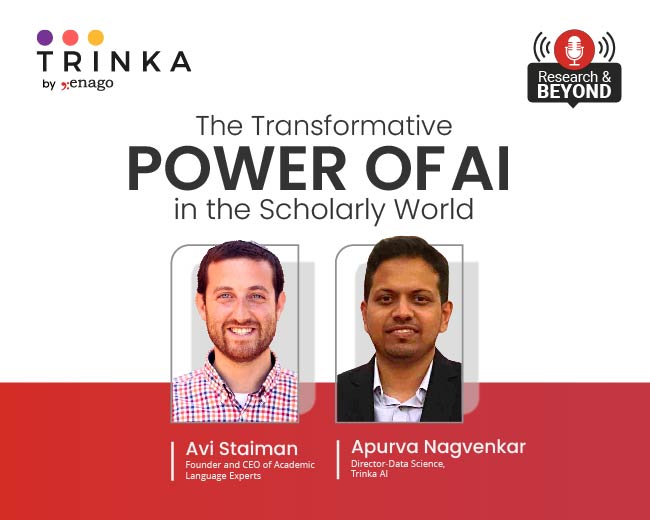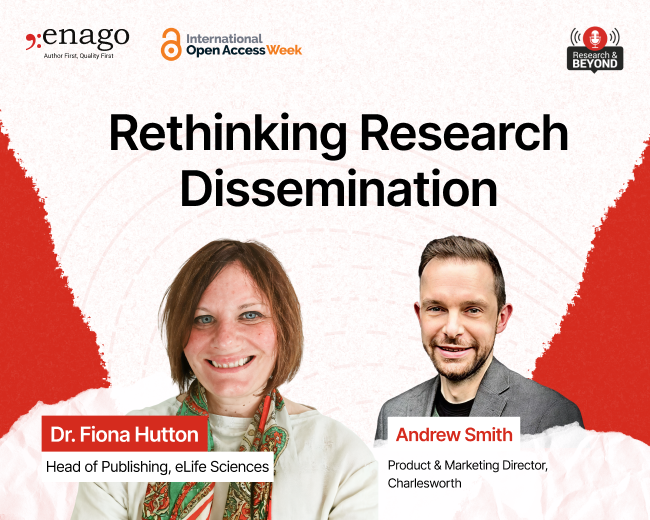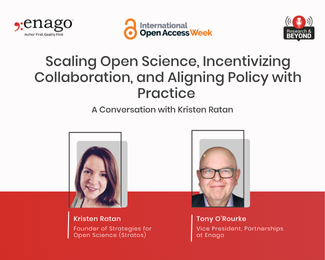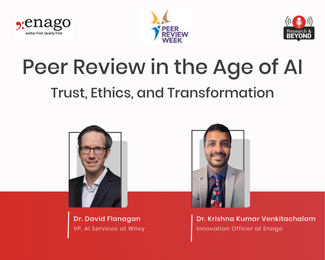By Enago Academy | Speaker: Avi Staiman
When we say Artificial Intelligence (AI) is rapidly transforming every aspect of our lives, the world of research writing and publishing is no exception. But what does this paradigm shift really mean for researchers? How can AI tools streamline processes and enhance productivity in an ethical and responsible way?
As researchers struggle with overflowing volumes of literature, keeping up with writing guidelines, submitting to the right journal, and so on, the need for tools that can streamline these processes and enhance productivity has never been more pressing. AI presents a compelling solution, offering the potential to revolutionize literature reviews, data analysis, writing, editing, and more. However, integrating these technologies into academic workflows raises critical questions around ethics, integrity, and accessibility. To address all the concerns arising when using AI in scholarly process, we sat with Avi Staiman, a top voice for AI in scholarly publishing for a stirring conversation on “Research and Beyond” with Apurva Nagvenkar — our Principal Data Scientist, Trinka AI.
Avi Staiman is at the forefront of this inevitable AI transformation. As the founder and CEO of Academic Language Experts and co-founder of SciWriterAI, Avi is dedicated to levelling the playing field for researchers worldwide, particularly those for whom English is a second language.
In this conversation, Avi takes us on a journey through the AI tools currently disrupting scholarly communication, from general-purpose language models like ChatGPT to specialized tools tailored for researchers.
This podcast encapsulated fascinating insights into the strengths and limitations of these technologies, highlighting the importance of using models trained on scientific literature for research applications, and much more.
Get ready to be challenged and equipped with the knowledge you need to embrace AI’s potential while upholding the highest standards of academic excellence. Tune in to this episode of “Research and Beyond” and join the conversation shaping the future of scholarly communication.




